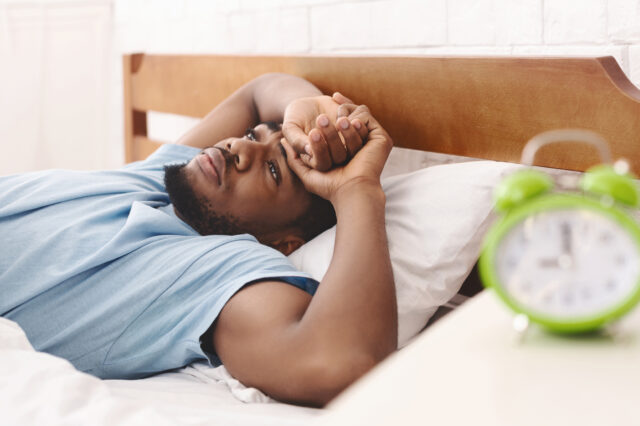How Safe and Effective is Melatonin?
If you’re one of the many who can’t sleep, you may have heard from a friend or relative about adding melatonin to your routine. Then you wonder, “Should I buy it? Which one? Will it work? Is it safe?”

Whether you’re on the front lines of the COVID-19 outbreak or staying at home, getting a good night’s sleep is more difficult than ever before. Many of us may be looking into methods of stress relief, including ways to enhance falling asleep. If you’re one of the many who can’t sleep, you may have heard from a friend or relative about adding melatonin to your routine. You then check out your local pharmacy’s options, preferably online at this time, reviewing the bottles and bottles of different formulations of melatonin, including tablets, capsules and gummies. There are also many variations like melatonin by itself, melatonin combined with other sleep aides, and options ranging from 1 milligram to 2 mg to 5 mg.
The choices can be dizzying as you wonder, “Should I buy it? Which one? Will it work? Is it safe?”
Before I answer these questions, let’s step back for a moment to talk about melatonin and supplements in general.
The role of melatonin
Almost every living creature has an innate “biological clock” that helps determine its biological day and night. This circadian pattern regulates sleep, core temperature, appetite, hormone releases and many other bodily functions. Melatonin plays a key role in this circadian pattern. As the sun sets and darkness begins, melatonin levels start to rise, signaling the body to start preparing for sleep. Melatonin levels continue to rise, peaking in the middle of the night, and then fall to very low levels in the morning and throughout the day. This pattern helps tell us when to fall asleep and when to wake up. As such, melatonin is not a sedative, but rather a time-keeper.
When to/not to take it
Disturbance of this circadian pattern leads to disrupted sleep. The most common example is jet lag, where crossing more than two to three time zones can lead to significant dysfunction of sleep. Another example is when people who are biologically “night owls” or “early birds” are forced to shift their cycle to accommodate their work or school schedule. In both scenarios, the American Academy of Sleep Medicine suggests that low dose melatonin, as part of a comprehensive treatment plan, may help reset the biological clock and restore sleep. However, the guidelines recommend against the use of melatonin as a sedative, as it is not been found to be effective.
What research has found
Because melatonin is classified as a dietary supplement in the U.S., there is no requirement by manufacturers to prove efficacy, safety or quality. This lack of regulation poses serious concerns regarding the content of over-the-counter, or OTC, melatonin. A recent study from the Journal of Clinical Sleep Medicine reviewed 31 different OTC melatonin supplements in Canada. They discovered that 70% of melatonin had concentrations that were less than 10% of the label. Additionally, melatonin content between many of the same products varied by as much as 465%, with the greatest variability observed in chewable tablets.
The final answer
All of the research confirms that OTC melatonin is not effective in the management of insomnia but may might have a role in the treatment of jet lag and circadian rhythm disorders. In addition, there is significant variability in OTC formulations raising safety and quality concerns and should be used with extreme caution. This is especially true for children and pregnant women. If you decide to take OTC melatonin, you can refer to independent resources such as consumerlab.com for more information.
The UF Health Sleep Center in Jacksonville, which is fully accredited by the American Association of Sleep Medicine, offers diagnostic and medical treatment procedures for all sleep disorders in a quiet, comfortable environment. The center, part of the UF Health Neuroscience Institute, features a multidisciplinary team led by board-certified University of Florida faculty physicians who specialize in sleep medicine.
More resources and tips on how to manage stress and anxiety levels during COVID-19 can be found here.